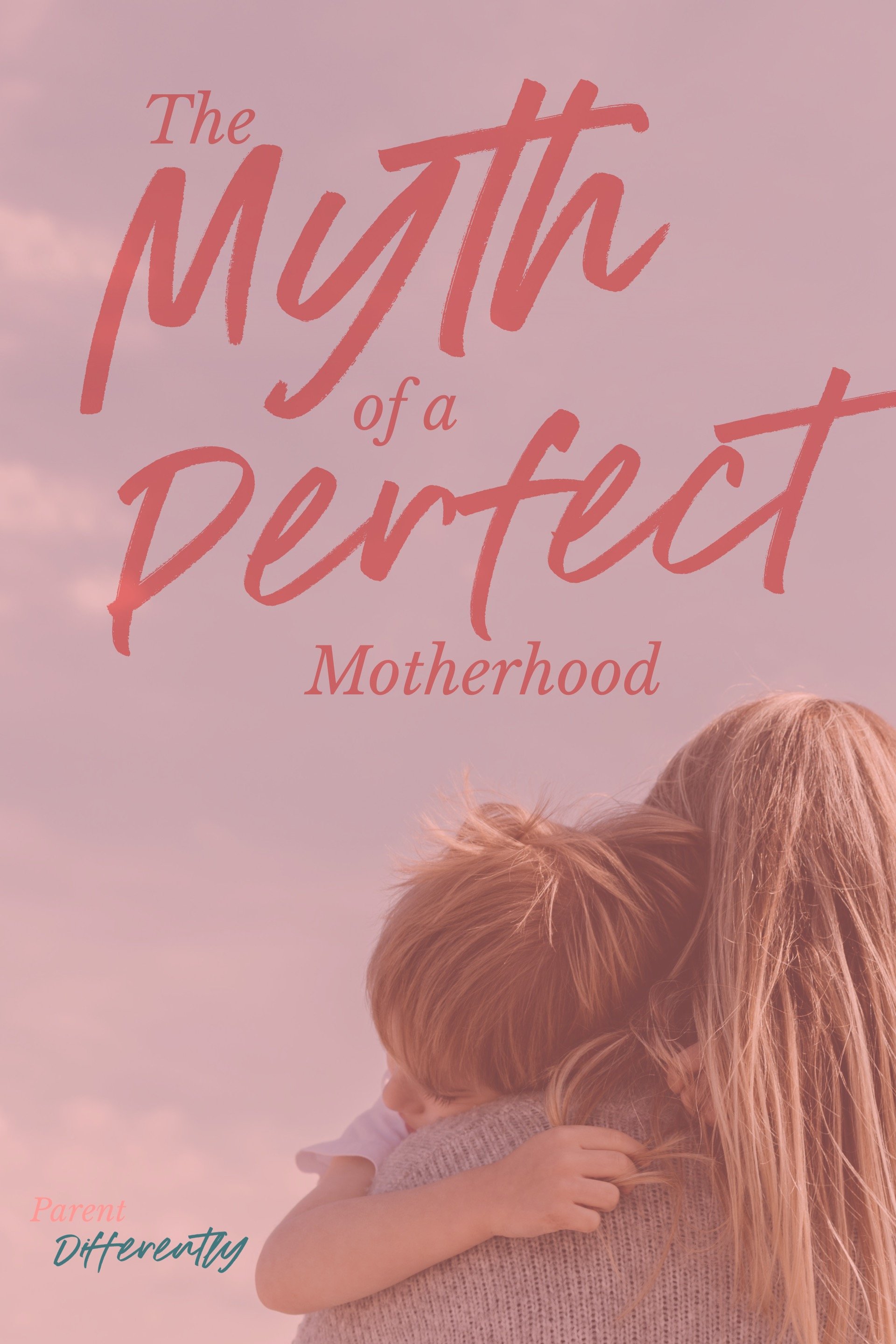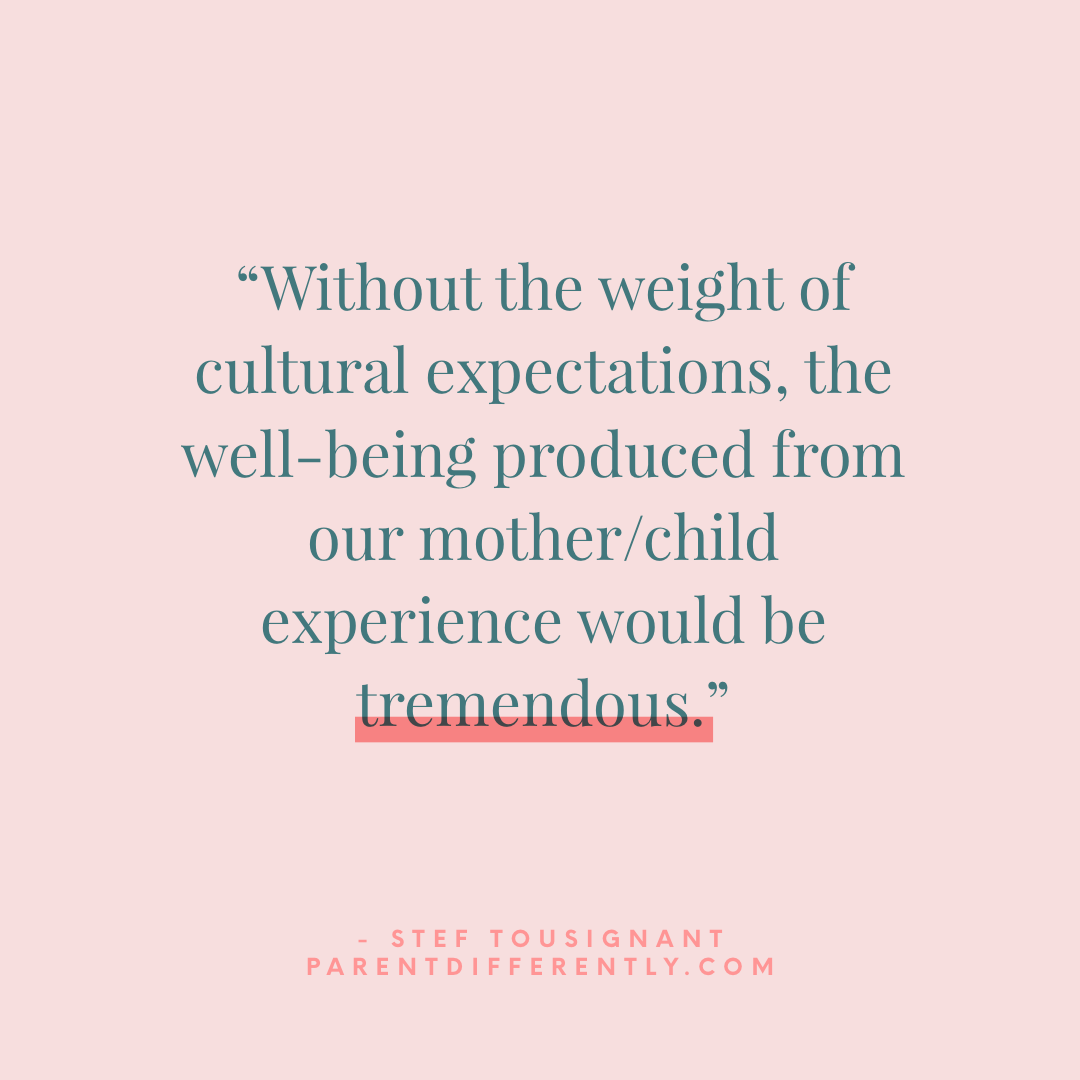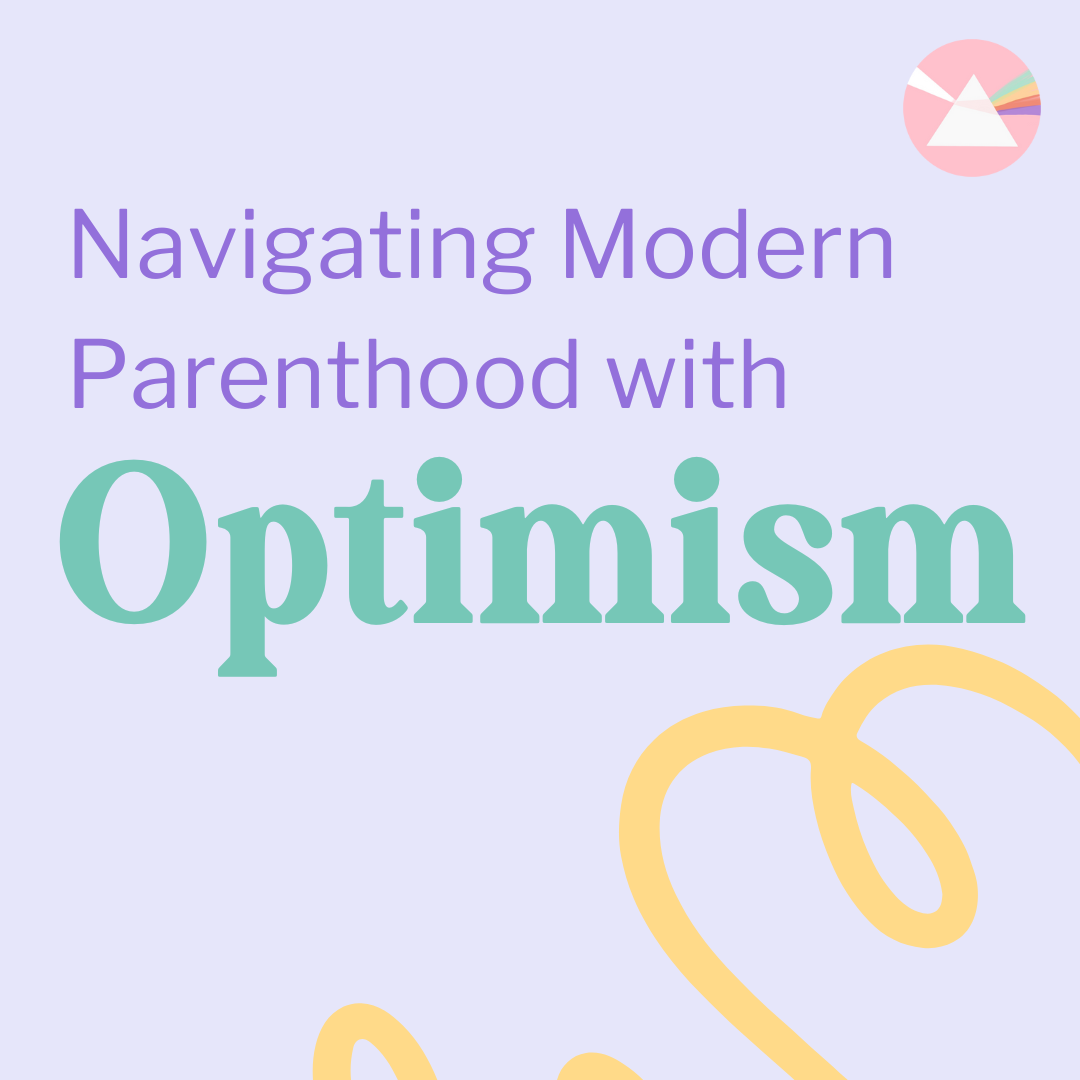Burned Out or Just Stressed? How to Tell the Difference
Parental burnout is real—57% of parents report experiencing it (Ohio State, 2024). But how is burnout different from everyday stress? Learn the signs, the science behind it, and how gratitude can help parents regain balance and resilience. Take the burnout quiz to see where you stand.
Parental Burnout vs. Parental Stress
What’s the Difference?
Let’s be honest, parenting can be a total s*** show - a firehose of surprises, joy, and challenges that feel like they will never end. It can feel overwhelming, exhausting, and relentless. At some point, most of us have felt stretched sooooooo thin, caught in the never-ending cycle of caregiving tasks, while adapting to changing circumstances and expectations. That’s why it’s important to recognize the difference between everyday stress and full-blown burnout—because one is a rough day, and the other can make you question everything.
Parental stress is a natural response to the demands of raising children—figuring out how to soothe a crying baby or managing a teenager’s curfew negotiations. Parental burnout, on the other hand, is when stress turns chronic and depletes you entirely. It’s more than feeling tired; it’s feeling like you have nothing left to give, emotionally or physically. Research shows that parental burnout stems not only from the pressures of caregiving but also from a culture that glamorizes sacrifice while offering little systemic support. Recognizing the signs of burnout is the first step toward breaking the cycle.
What’s Causing Parental Burnout?
Fifty-seven percent (57%) of parents self-reported burnout in an Ohio State 2024 survey. So, what’s driving this pervasive issue? For many, it’s the impossible expectations placed on parents today. We’re told to be constantly present, perfectly engaged, and endlessly productive. If you’ve ever felt like you’re failing no matter what you do, you’re not alone.
But burnout isn’t just about the demands placed on us—it’s about the gap between those demands and the resources we have to meet them. When the system leaves parents without support—like affordable childcare, flexible work options, or community networks—burnout becomes a natural consequence.
What Are Some Signs of Parental Burnout?
Burnout doesn’t show up with a big red flag 🚩 or an official warning 🚨 —it sneaks in, slow and steady, until one day you realize you’ve got nothing left in the tank. Maybe you feel emotionally detached from your kids or find yourself snapping at them more often. You might wake up feeling as exhausted as when you went to bed, or you’ve started questioning whether you’re cut out for parenting at all. These feelings can spiral if left unaddressed.
There are the four widely recognized signs of parental burnout, or a “prolonged response to chronic and overwhelming parental stress” (Mikolajczak & Roskam, 2018). But here’s the good news: You can interrupt that spiral. And no, you don’t need a life overhaul or a weeklong retreat to do it.
4 Symptoms of Parental Burnout:
- Extreme exhaustion – Waking up already drained, dreading another day of parenting, and feeling emotionally depleted.
- Emotional distancing – Becoming less engaged, going through the motions, and interacting only to meet basic needs rather than for connection.
- Loss of fulfillment – Feeling fed up with parenting, no longer enjoying time with your children, and questioning your role as a parent.
- Drastic shift from the past – Feeling completely different from the parent you once were, as if you’ve lost the joy or purpose you used to have in parenting.
Not sure if you are burned out? Take this quiz.
How Can Gratitude Help Interrupt Burnout?
This is where the Parenting with Gratitude® method comes in. Gratitude isn’t about ignoring the hard stuff or slapping a smile on your face when you feel like crying. It’s about noticing the good that already exists, even in the chaos. Gratitude allows you to focus on what’s working instead of what’s not—giving you a much-needed mental reset.
For example, instead of ruminating on a how you handled a tantrum-filled morning, you might notice how your child’s laughter lit up lunchtime later. Gratitude doesn’t erase the challenges, but it softens their edges, helping you approach parenting with more resilience and joy.
How Can Parents Start Practicing Gratitude Today?
You don’t need hours of free time or fancy tools to begin. Here are three small steps you can take today:
End the day with a win: Before bed, write down one thing that went well—even if it’s as simple as everyone eating dinner without complaint.
Shift your focus: The next time you catch yourself replaying a tough parenting moment, pause and ask yourself: What went right today?
Create a gratitude anchor: Choose a simple ritual that reminds you to notice the good—whether it’s every time you grab your keys, or maybe tacking up a favorite quote on the fridge that will catch your eye each time you breeze by.
Parenting with gratitude doesn’t mean pretending things aren’t hard. It means giving equal weight to the joy, connection, and growth that come alongside the challenges. And when you start noticing those moments more often, something shifts—you stop surviving and start thriving.
So, the next time you feel like parenting is all too much, try this: Take a deep breath, look for one thing you’re grateful for, and remind yourself that you’re doing enough. You’ve got this.
Ready to take the next step? Learn more about the Parenting with Gratitude® method and how it can transform your parenting journey. Let’s embrace the joy already waiting for us.
Yes, the kids are worse for you - and now there's proof.
Uncover why the kids are worse for us and what we can do about it as moms.
So, you might have seen a TikTok recently claiming that kids are 800 times worse for their parents. It went viral, but here's the kicker – the so-called "study" it was based on was total fiction, cooked up by Mom News Daily. Still, it resonated with so many of us, and there's a reason why. Kids ARE worse for their parents, especially their mothers. But it's because they feel comfortable, safe, and supported around us. It's kind of like when you're with your best friend. You say and do things you'd never dream of at a cocktail party (unless you're three drinks in, of course!).
This is NOT REAL! But it feels it!
Kids with secure attachments know their parents will love and protect them no matter what - in fact, they rely on this fact for all of their growth. Without this feeling of safety and support, they would never explore their world and take risks. Think about it – it's much easier to try new things at work when you have a kind, supportive boss who won't fire you for making mistakes. Now try that except on overdrive - unconditional love means we are not going anywhere. And if your kid knows that — that’s a win, Mama.
But yes, there's no denying that sometimes being a mom feels like you've drawn the short straw, and it's not just now and then, but all the time. From the moment they wake up to when they go to sleep, it can feel like you're their personal punching bag. When you want one thing done, they are on the floor kicking and screaming. When you pick them up from a playdate, you’re told what an amazing eater they are. When they head out for the day with your partner or your parent, they're all sunshine and rainbows, and they all have “such a great time!”
For me, that last one stings the most. I know that if I were to take the kids to the Discovery Museum or the beach, some of it would be fun, but it would also be a constant tug of war. And when my partner or parents tell me about their amazing outings, it's hard not to feel a little resentment. Thoughts like, "How could you go out and have a good time? Motherhood should be like that for me!" sneak in. But the hard truth is that I'm the mother and those picture-perfect moments I thought I was destined for rarely happen. And there's real grief in that, Mama. I still feel it, even though my kids are almost teens.
And those experiences you thought you were destined for, the cuddly couch moments, the sharing of a picnic on the beach, the laughing together as you push the grocery cart, they die a death that breaks your heart. You thought motherhood would be filled with these moments, and it’s just not. And there is tremendous grief around that Mama. I know, I feel it still. It’s a sort of death, of all the experiences you thought would make motherhood feel worth it.
I think it’s important to talk about this grief because it is what binds us together as a community of moms. It’s the ideal we were fed that we would love motherhood, that it was so full of meaning that the crap that goes with it, the daily slog, the cultural expectations to be a super mom, the unequal distribution of the emotional load — that it would be all “worth it” but it falls short.
And maybe that’s why you are here on my page parentdifferently.com - because you want to find a way to parent differently - to parent with joy, fun, and gratitude because the daily grind just kinda sucks, doesn’t it? Well, I will tell you that there is no magic solution, but I do have a few ideas that will make it suck less. Starting by taking a step back and looking at your life from 8,000 feet up. What are you grateful for? What makes YOU a GoodAF mom? What parts of your life just light you up? What makes you excited to be alive? These are your “whys,” the reasons you get out of bed in the morning - and they matter even if they are a little cheesy. They matter because they are the foundation which you build every single day upon. A good intention will get you far, Mama (and that’s one of the reasons it’s the first step in the Parenting with Gratitude™ equation more here on that).
Long Term Practice to try
Gratitude and Savoring. Once you have your WHY in hand, the next thing you can try is Savoring - and I have a whole podcast on this practice. Whether it's your child's birthday or any special time, focus on your five senses – notice the crinkle of wrapping paper, the joy in their giggle, the smell of cupcakes baking, and the softness of their favorite shirt. Take your time to savor these moments, and they'll grow in your memory.
Something to do this week:
So, I’m not going to leave you high and dry here - It's important to address the sadness and discomfort, but it's also crucial to find immediate relief. For me, this is where a YES Day thrives.
A YES Day is a day when you say yes. A YES Day is a carefully planned and boundary-set day when you say "yes" more than usual. Discuss with your child how it'll look and what rules should be in place. Be prepared, and make it a special day, an oasis of joy and happiness in the midst of everyday life. Then, put your day on the calendar, the anticipation will be palpable! And on that day, be ready to savor the look on your kid’s face when you say yes, the fun things they come up with, and you do together - it will take you through a few more weeks. And maybe you put a yes day on the calendar every month - or once a school break - or just once a year. Whatever you do, it will be special, and I hope you enjoy the moments because a YES Day is really for you.
Don't forget, even when no one else in your house seems to notice, you are a GoodAF mom - Stef
What to read next…
The Myth of a Perfect Motherhood
Uncover why modern motherhood can differ from expectations and how shifting societal narratives empower you to raise the next generation.
EMBRACING SELF-GROWTH AND COMMUNITY
Motherhood today is a far cry from the idyllic images painted for us on our Instagram feeds. It's not a serene, monotone journey, but more like a crazy, emotional rollercoaster ride.
We are caught in the highs and lows of paradoxical emotions, battling the ever-looming "mom guilt" and trying to “enjoy every moment.” 🙄 What was once thought of as the epitome of a "good life" has evolved into a stressful mess. Why is this happening!? And how can we make it better?
Let's talk about the realities of modern motherhood, the myth of the maternal instinct, and how embracing self-growth and community could just be our ticket out of this chaos.
THE MYTH OF THE MATERNAL INSTINCT
Once upon a time, motherhood was seen as the ultimate path to happiness for women. It was believed that women possessed a natural maternal instinct that made parenting easy and immensely rewarding. However, today's reality couldn't be further from this ideal. Mothers face a myriad of emotions, from joy and gratitude to sadness and anxiety, all within the first 24 hours of welcoming a new baby into the world. The maternal ideal shatters for most women in those first moments, and they're left to grapple with a range of complex feelings that come up - especially shame.
UNDERSTANDING EMOTIONAL COMPLEXITY
Life is a tapestry of emotions, and many of the emotions we experience can be divided into two categories: positive and negative. Negative emotions like shame, anger, and fear prompt specific survival focused responses, limiting our thoughts and actions to mainly flight, fight or freeze. On the other hand, positive emotions like joy, gratitude, and awe don't trigger immediate action; instead, they broaden our perspective, opening us up to new ideas, concepts, and resources. This phenomenon is known as the "broaden-and-build theory of positive emotions" and was developed by Barbara Fredrickson in 1998.
SO, WHY DO THE FIRST DAYS OF MOTHERHOOD OFTEN FALL SHORT OF EXPECTATIONS?
The answer lies in the clash between personal experience and cultural norms. The cultural narrative of motherhood emphasizes its meaning and importance, but it also sets unattainable standards. Without the weight of cultural expectations, the well-being produced from our mother/child experience would be tremendous. Satisfaction and well-being are subjective, or shaped by individual perspectives, but when our experiences deviate from societal norms, our satisfaction can take a hit.
THE PURSUIT OF THE "GOOD LIFE"
The definition of a "good life" is a subject of debate among researchers and philosophers. Christopher Peterson (2006) argued that the most desirable state involves eudemonic harmony, or a balance between meaning, purpose, growth, and expansion. This balance can be achieved through self-actualization, self-reflection, and the discovery of positive character traits. And once we learn these skills, we aren't selfish; we use them to serve the greater community.
THE CHANGING FACE OF COMMUNITY
However, there's a notable difference between today's communities and those of previous generations: individualism. In the past, when the term "parent" primarily referred to mothers, there was a sense of community support. Neighbors, bus drivers, and extended families all looked out for children. Mothers had a robust network of help. But the rise of individualism has brought both freedom from gender-confining roles AND an increase in loneliness and depression rates (read more about that in Generations by Jean Twenge).
Maternal depression rates have risen, with one in ten children experiencing a depressed mother (Ertel, Rich-Edwards, & Koenen, 2011). A recent Pew Research poll found that 66% of mothers felt that parenting was "a lot harder" than they had anticipated. These factors, coupled other influences, have led to the lowest birth rate in US history.
(Read more about building community through simple gratitude events here.)
THE MYTH OF PARENTING PERFECTION
The message that parenting is "worth it" creates confusion when it doesn’t match reality, and it contributes to the perception that parenting is much harder than expected. By portraying the complete emotional landscape of parenting, we can acknowledge that “meaning” is derived not only from positive experiences but also from the negative ones. It was Peterson who points out that negative experiences act as signals, showing us the areas that need attention: "I'm angry when my kids don't listen because I feel unseen." But positive experiences motivate growth: "Hugging my kids after work calms me and provides the attention I need."
A GOOD LIFE ISN'T ALL GOOD
A good life doesn't have to be all good and there are certainly bad days. In fact, enriching experiences often stem from overcoming challenges. It's the negative experiences, just as much as the positive ones, that make parenting a source of well-being and life satisfaction. They inspire growth and self-reflection. With a shift towards more inclusive messaging and improved social support, future parents can step into the delivery room with a set of expectations that align with the realities they'll face. It's a journey filled with both ups and downs, guided by the compass of self-growth and supported by a caring community.
WHAT NOW?
The pursuit of a "good life" is a deeply personal journey. By acknowledging the diverse emotions that parenting can surface and shifting our societal narrative to one of inclusivity and support, we can navigate the challenges and joys of raising the next generation. It's time to embrace the full spectrum of parenting experiences, recognizing that a "good life" can be derived from both the positive and negative moments. In doing so, we can create a world we feel empowered to grow, learn, and thrive as we navigate the rewarding adventure of raising children.
- And don’t ever forget along that journey, you are a GoodAF Mom. - Stef
What to read next…
#MomLife Unfiltered: 5 Essential Ways to Keep It Real
Gratitude serves as a foundation for nurturing connections with other parents and broadening our perspective. It empowers us to embrace our parenting mishaps as integral parts of our journeys, ensuring they do not overshadow our achievements.
“Gratitude serves as a foundation for nurturing connections with other parents and broadening our perspective. It empowers us to embrace our parenting mishaps as integral parts of our journeys, ensuring they do not overshadow our achievements.”
Have you ever found yourself scrolling social, comparing your parenting journey to those seemingly perfect families online? Or perhaps you've tried a 'quick and easy' toddler activity only to find it took hours to set up?
You're not alone. As mothers, we often wrestle with the pressure of high expectations, whether it's the quest for the perfect family photo or the desire for our little ones to embrace every meal we prepare. Just as Shakespeare once said, 'Expectations are the root of heartache.' These unattainable standards can affect how we view our success, self-worth, and even our daily interactions with our children — and they have a lot to do with just how loud our Mom Guilt can get.
The pursuit of high expectations and the desire for life to be a “certain way” are not new, and neither are their resulting negative consequences. They can lead to apathy, stress, and anxiety. These “high standards” can impose rules on our lives that feel so solid and unbreakable—until you start to notice they don’t have to be.
Here are five ways you can adjust your worldview and ground your expectations. Grounded expectations are not about letting things go or even going with the flow; instead, they are rooted in curiosity. What will happen when I try this new baby sleep routine? Or when I substitute sweet potatoes for carrots in this toddler meal? They allow room for growth through experience - and yes, even for mistakes.
Let’s get grounded:
1. Self-Awareness
Take the time to learn more about yourself as a parent. Explore your strengths and areas where you might need support. For example, you might discover that your patience and creativity make you excellent at finding fun toddler activities. Alternatively, you may realize that you thrive in a more flexible daily routine, and that's okay too. We are all unique parents, and what brings happiness and fulfillment can vary greatly from one parent to another. Getting to know yourself better is the first step in making parenting choices that align with your true desires and your child's needs.
2. Social Connection
Seek social connection and support from other parents. It's that reassuring feeling of 'Oh, it's not just me,' like when you discover that the struggles of motherhood are common to us all. This expanded viewpoint helps to balance and validate our personal experiences in realistic ways. For example, when you connect with other moms who have had success introducing toothbrushing, you can gain valuable insights that may help your personal toddler struggle. Through social support, you can establish parenting expectations grounded in real information (It took 6 months!), ultimately offering a more balanced approach to setting expectations for your family's future.
3. Practice Gratitude
Practicing gratitude is a valuable skill, and yes, it can be challenging in a world driven by constant comparison. But it is an essential component of grounded expectations in the world of parenting. Gratitude serves as a foundation for nurturing connections with other parents and broadening our perspective. It empowers us to embrace our parenting mishaps as integral parts of our journeys, ensuring they do not overshadow our achievements. This website is a treasure trove of gratitude ideas - jump in!
4. Cultivate Optimism
This is not about being happy all the time; it's about nurturing the inherent goodness in our parenting journey. Martin Seligman, often regarded as the father of positive psychology, encourages us to view our inner dialogue as a simple way to cultivate optimism as a parent. He emphasizes that 'changing the destructive things you say to yourself when you experience the setbacks that life deals all of us is the central skill of optimism.’
5. Practice Mindfulness
Practicing mindfulness, which involves noticing without judgment, is essential for avoiding getting too wrapped up in what 'could have been.' Overcoming our natural thought patterns takes practice. Mindfulness can take the form of a quick breathing exercise or simply taking a moment to be present with your little one. The key is to leave all judgment on the sidelines.
Remember, in the messy journey of motherhood, embracing your authentic self and grounding your expectations can lead to a more joyful and fulfilling parenting experience for both you and your little ones. After all good enough is GoodAF in my book - Stef





































